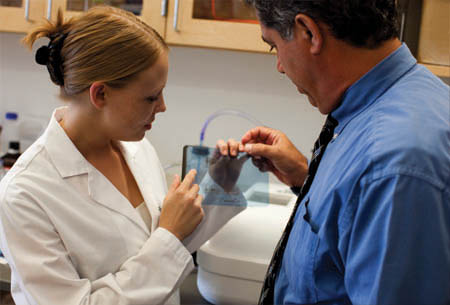How To Prevent Prostate Disease Consequences
Prostate cancer and other prostate diseases are a growing problem in our time. The prostate gland is located around the urethra and serves to form the transport fluid to the man’s sperm. With age, the prostate gland enlarges. It often causes the urethra to compress and it may be more difficult for urine to pass. About half the men over age 60, and four out of five men over 80 years, suffer from prostate enlargement. The enlargement is benign means you do not have cancer. Prostate enlargement is a common reason why men get lower urinary tract disorders. Over half of all men who receive BPH have symptoms. Most often, the symptoms remain unchanged for a long time, but they can both improve and deteriorate.
When to seek medical help?
Common symptoms of urinary stream becomes weaker, the need to strain to empty the bladder completely, or that it feels as if the bladder is not completely empty. It can also be interrupted once or several times when urinating. You may need to urinate often, get a rush to the toilet and having to get up several times at night. Sometimes time urine leak out before you make it to the toilet. If you get severe symptoms can get complete shutdown, which means that you can not urinate at all. One can also get bladder stones, and occasionally kidney problems.
All men with BPH do not need treatment, but if you have trouble, there are medicines that can help. If you have much trouble can prostate reduced by such operation. You should contact a health center if you have blood in your urine, difficulty urinating, leaking of urine or the need to urinate frequently. If you can not urinate at all should seek care directly at a clinic or emergency room.
How to prevent aggravation of prostate disease

Recently there have been found links between high insulin levels and low Vitamin D levels as regards the development of diseases in the prostate. Major culprits could also conceivably be our changes in diet that contains too much sugar and too little nutrition. Moreover, we are increasingly inclined to sit indoors more or less throughout the winter even though we need daily exposure to sunlight. The latest research claims that the most important factors to prevent prostate cancer and other prostate diseases undoubtedly are primarily to:
– To stick to a diet distribution that reduces the intake of carbohydrates.
– Avoiding simple carbs (like white bread and foods high in sugar)
– Increase the intake of fat, and especially the intake of marine fats (fish and seafood)
– Eating more proteins and in this case, mostly from marine sources.
Since a lack of vitamin D has a strong link to cancer of the prostate is likely that ordinary sunlight becomes a method of treatment in the future. In a survey conducted by the Urology University of Michigan it was found that 20 percent of men suffering from an enlarged prostate could be linked to low levels of vitamin D. Whether supplements of vitamin D and artificial light therapy helps give the body enough vitamin D to protect the prostate is unclear. But it does not hurt to try.
Clearly, however, exposure to ordinary sunlight is the most effective method to get enough vitamin D. In a lecture recently talked Associate Professor Jan Hammarsten it was pinpointed how important it is to get the vitamin D in the form of increased exposure to sunlight or by dietary supplements. He also believes that we are only beginning to scratch the surface of vitamin D importance and that there will be many more research in the near future that emphasizes how important it is to have enough vitamin D in the body.


